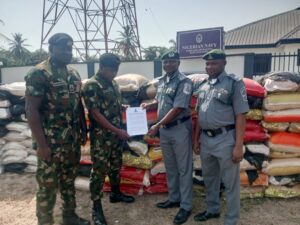A former Director General, Nigerian Maritime Administration and Safety Agency (NIMASA), Mrs Mfon Usoro has dawn drew Federal Government's attention to the need for a national legislation on oil pollution.
Usoro, the Secretary General, West and Central Africa MOU on Port State Control, made the remark in Abuja at the on-going 12th Maritime Seminar for Judges.
She said that, “the potential for oil spillage is huge and there is need to have a law on pollution damage from oil activities.’’
A former Director General, Nigerian Maritime Administration and Safety Agency (NIMASA), Mrs Mfon Usoro has dawn drew Federal Government's attention to the need for a national legislation on oil pollution.
Usoro, the Secretary General, West and Central Africa MOU on Port State Control, made the remark in Abuja at the on-going 12th Maritime Seminar for Judges.
She said that, “the potential for oil spillage is huge and there is need to have a law on pollution damage from oil activities.’’
According to her, the major source of oil pollution in Nigeria is operational spills.
She said it had become very germane and necessary for government to know this and take action.
She said, “the economy of the nation rests on oil production from the Niger Delta, with more than 7,000 kilometres of pipelines that crisscross the communities and more than 5,284 oil wells and crude oil terminals’’.
The maritime lawyer recalled incidents of oil spills in the Niger Delta, saying that pollution of the soil by petroleum hydrocarbons in Ogoniland was extensive in land areas that nobody would be able to farm anymore.
Usoro said the nation had domesticated about 20 international conventions including Safety of Life At Sea 1974 (SOLAS) and should be able to come up with a legislation on oil pollution.
She said the legislation on oil spills should cover ships generally, floating platforms, on-shore, off-shore and oil and gas installations.
The maritime lawyer also expressed the need for international compensation regime and the need for global instrument concerning liability and compensation for oil pollution damage resulting from offshore oil exploration and exploitation.
Usoro advised that Nigerian delegates to the International Maritime Organisation (IMO) meetings should be fully prepared and robustly go into such meetings for international conventions with particular reference to Nigerian situations for adequate compensation to be made in cases of oil pollution.
Earlier, Dr Patrick Griggs, said oil pollution had for many years been subjected to internationally-agreed strict liability and compensation regimes.
According to Griggs, on the face of it, it is surprising that there are no international conventions governing spills from oil exploration and exploitation platforms.
Speaking on `pollution from ships, oil exploration and wreck removal,’ he recalled that the present wreck removal convention 2007 was developed from an initiative by Germany, the Netherlands and the United Kingdom at the 73rd session of the IMO Legal committee.
He said the motive was to establish uniform rules for wreck removal operations in international waters.
















Discussion about this post